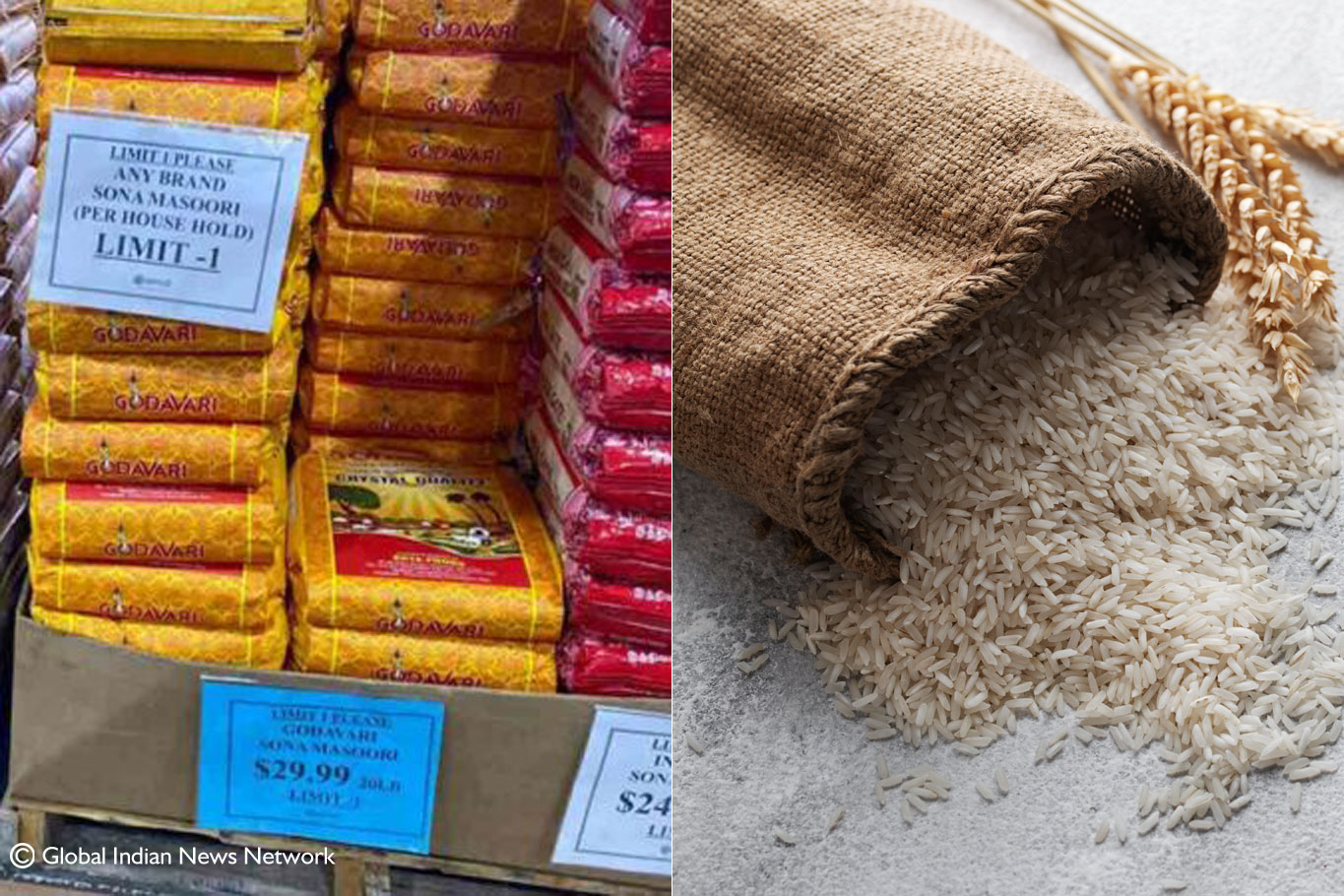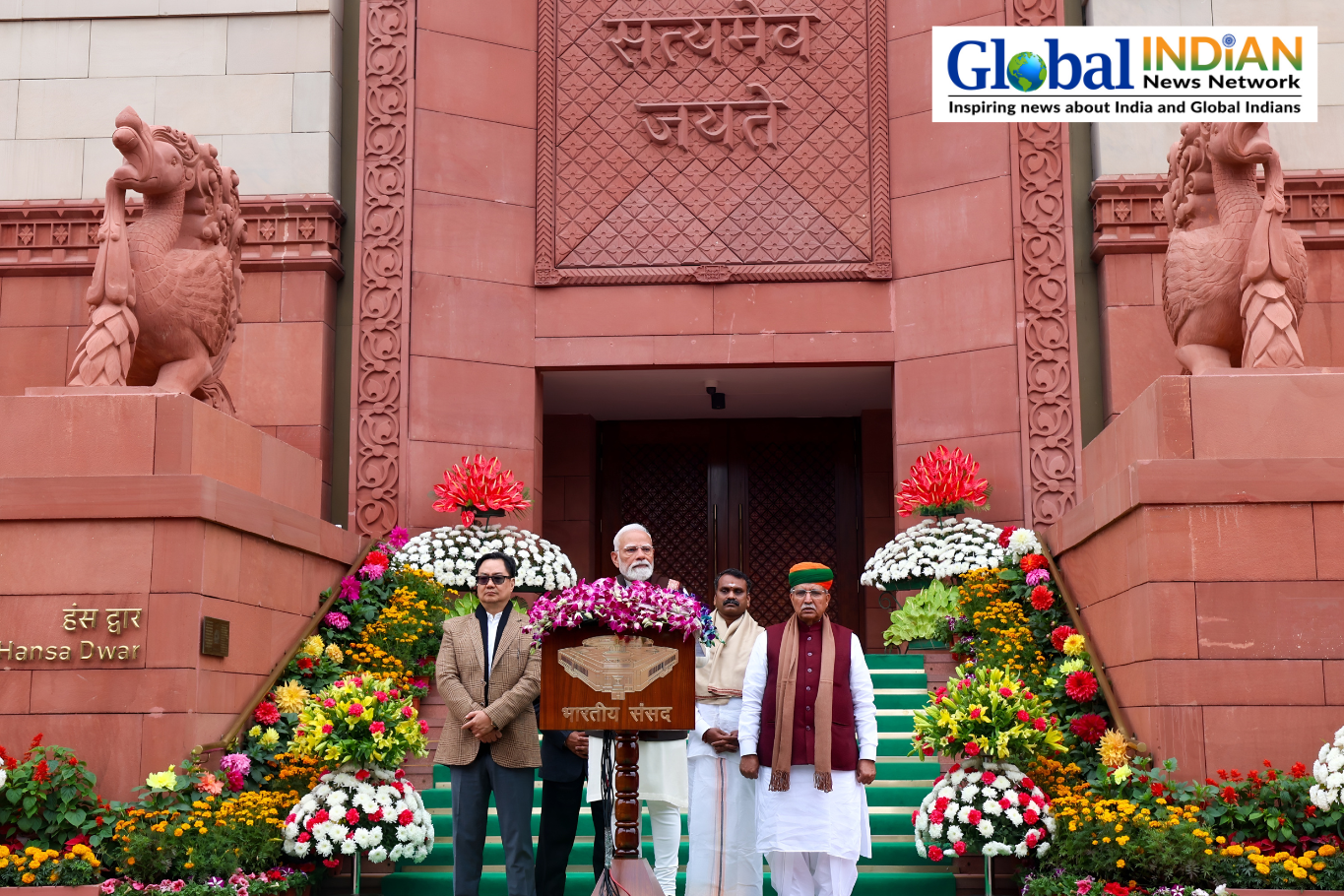 Indian expatriates (NRIs) residing in the United States are encountering challenges when attempting to purchase rice from local Indian stores. The hurdles stem from restrictions on rice purchases and the surge in prices, following India’s decision to ban the export of ‘Non-Basmati White Rice.’ The Indian government amended the export policy for this type of rice, changing it from ‘Free with export duty of 20%’ to ‘Prohibited,’ in order to ensure sufficient availability of Non-Basmati White Rice within the domestic market. As a result of this ban, NRIs are facing inflated prices, with some buying rice bags at triple the usual cost. A rice wholesaler in Baltimore, Tarun Sardana, predicts that this shortage will persist for the next few weeks. The ban was imposed by India to address the issue of excessive rains leading to soaring domestic prices and to secure adequate supplies for its own population. According to government data, the domestic price of non-basmati rice has escalated by nearly 10% this month.
Indian expatriates (NRIs) residing in the United States are encountering challenges when attempting to purchase rice from local Indian stores. The hurdles stem from restrictions on rice purchases and the surge in prices, following India’s decision to ban the export of ‘Non-Basmati White Rice.’ The Indian government amended the export policy for this type of rice, changing it from ‘Free with export duty of 20%’ to ‘Prohibited,’ in order to ensure sufficient availability of Non-Basmati White Rice within the domestic market. As a result of this ban, NRIs are facing inflated prices, with some buying rice bags at triple the usual cost. A rice wholesaler in Baltimore, Tarun Sardana, predicts that this shortage will persist for the next few weeks. The ban was imposed by India to address the issue of excessive rains leading to soaring domestic prices and to secure adequate supplies for its own population. According to government data, the domestic price of non-basmati rice has escalated by nearly 10% this month.
The ban on the export of non-basmati white rice has led to panic buying among NRIs in the US. Videos and photos on social media depict long queues outside grocery stores, with customers buying multiple bags of rice. There are concerns that rice hoarding may occur, and some individuals may attempt to sell rice at inflated prices through online platforms.
India’s Food Ministry issued a statement justifying the export ban as a measure to ensure sufficient availability of rice in the domestic market and address the rise in prices. The ban was imposed in response to a significant increase in retail prices over the past year and a 35% year-on-year surge in Indian exports of non-basmati white rice in the second quarter.
The ban is also expected to impact other countries, including African nations, Turkey, Syria, and Pakistan, which are already grappling with high food-price inflation, as per data analytics firm Gro Intelligence. India’s ban on non-basmati rice exports is likely to have a notable impact, given that the alternative major rice exporters, such as Thailand, Vietnam, Pakistan, and the US, may not have sufficient capacity to meet the increased demand caused by the ban.











